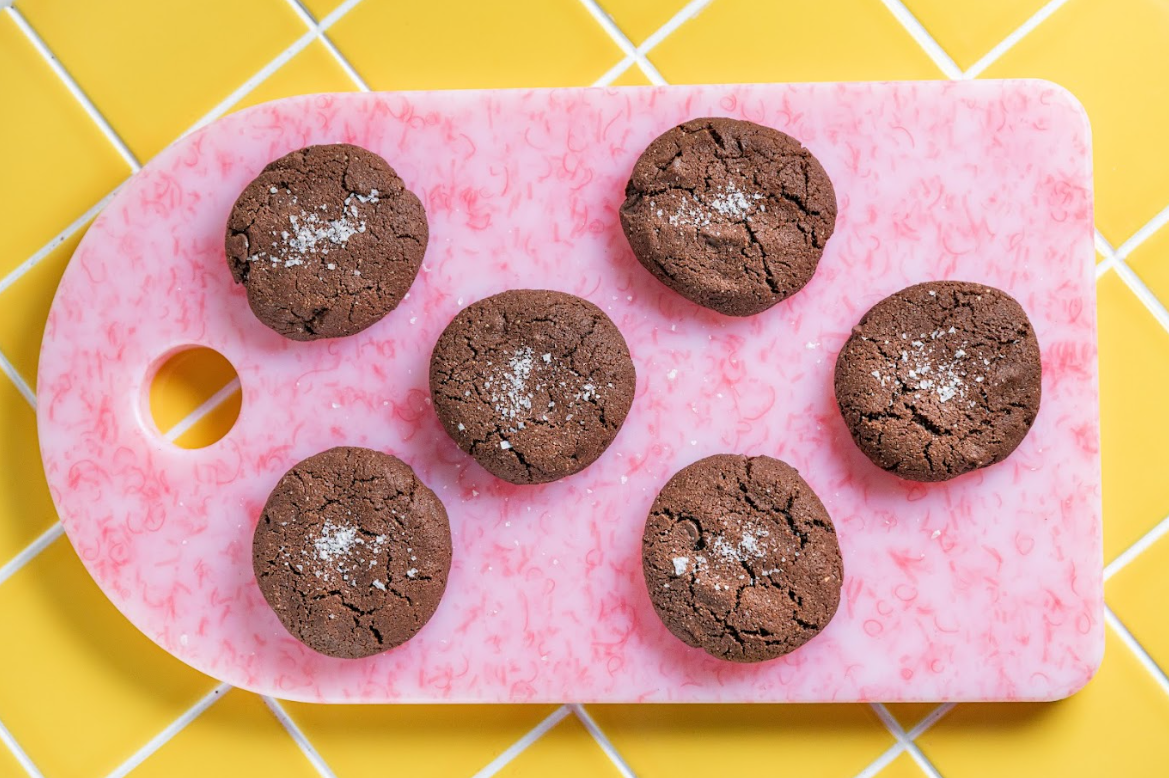If you’ve been experiencing unexplained symptoms after eating certain foods, you might be wondering if gluten could be the culprit.
In individuals with diagnosed gluten-related disorders, gluten can trigger a variety of intestinal, extraintestinal and neurological symptoms when they interact with the lining of the small intestine.1
The symptoms of gluten ingestion can vary widely between individuals, depending on their condition and level of sensitivity. While some people experience digestive issues, others might only notice changes in their mood, energy, or even skin. 2-4
Symptoms of Gluten-Related Disorders
Gastrointestinal Symptoms
- Abdominal pain or cramping – discomfort in the stomach area that may feel sharp, dull or come in waves after eating.
- Bloating and gas – a feeling of abdominal fullness or distension, often with excess gas.
- Diarrhoea – recurrent loose or watery stools.
- Constipation – infrequent or difficult bowel movements.
- Nausea and vomiting – an unpleasant feeling of needing to vomit, which may or may not lead to the forceful emptying of stomach contents.
Neurological Symptoms
- Headaches or migraines – episodic or chronic pain in any part of the head, which may be a dull ache, throbbing or severe, sharp burst.
- Fatigue – persistent tiredness or lack of energy, not relieved by adequate rest.
- “Foggy mind” – problems with concentrating, remembering, or mental clarity.
- Depression – ongoing low mood, feeling of overtiredness, diminished interest in activities.
- Anxiety – Persistent and intense worry, restlessness, or heightened nervousness.
- Numbness in extremities – tingling or loss of sensation in the hands, feet, arms or legs.
Extraintestinal
- Joint and muscle pain – stiffness, aching, or discomfort in the muscles or joints that may limit movement.
- Skin rash and blisters – patches of red or inflamed skin that may be itchy, sore, or develop fluid-filled spots.
Other Symptoms and Signs
Gluten ingestion in gluten-related disorders may also contribute to other symptoms and signs, such as weight loss, nutrient malabsorption, iron and vitamin deficiencies, anaemia, ataxia, mood swings, peripheral neuropathy, decreased bone density, osteoporosis and others.
Wheat Allergy Symptoms
Wheat allergy is recognised as a gluten-related disorder, but it differs from other types because it’s not uniquely caused by the ingestion of gluten proteins. The IgE-mediated allergic condition is triggered by several wheat proteins, including gluten proteins (gliadin and glutenin) as well as non-gluten proteins such as wheat albumin and globulins, lipid-transfer proteins (LTPs), thaumatin-like proteins (TLPs), and peroxidases.5
In addition to some symptoms that overlap with those described above, allergic responses may include oral itching, hives, itchy rash (eczema), swelling of lips, tongue, or throat, nasal congestion, breathing difficulties, and distress often due to an acute reaction.
What is Gluten and Why Does It Cause Problems?
Gluten is a type of protein found in wheat, rye, barley, and their subspecies and hybrids, including spelt, triticale, and durum wheat6. Its unique structure is what gives bread its stretchy texture, but unlike most dietary proteins, it is difficult for the body to completely digest with stomach acid and digestive enzymes. This means that some fragments remain only partially digested.
When these undigested fragments reach the small intestine and interact with the intestinal lining, one of two things can happen. For some people, they cause no issues at all. For others, they may trigger symptoms and reactions that vary depending on the individual’s medical condition and their degree of sensitivity.
If you’d like to learn more about why gluten behaves differently to other proteins, read our blog on how gluten is digested in the body.
Why Gluten Affects People Differently
Symptoms of gluten ingestion are highly individual. Several factors can influence how your body reacts to gluten, including:
- Your specific diagnosed condition
- The amount of gluten needed to trigger your symptoms
- How much gluten you’ve eaten
- How often you’re exposed
This is why two people can have very different experiences. For some individuals, as little as 10 mg (roughly the equivalent of a few breadcrumbs) can be enough to trigger symptoms7 while others might only react after consuming larger quantities.
What To Do If You Experience Symptoms of Gluten Ingestion
If you think gluten may be causing your unexplained symptoms, it’s important to speak with a healthcare professional before making changes to your diet. Eliminating or cutting back gluten without first seeking medical advice can affect the accuracy and complexity of the diagnosis.
If you’ve already been advised to follow a gluten free diet for your condition and adhere to one strictly, but still experience symptoms, consider these possibilities:
- Alternative causes: Similar symptoms that appear gluten-related can sometimes be linked to different conditions. These should be discussed with a healthcare professional to ensure appropriate investigation and management.
- Accidental gluten ingestion: Unintentional gluten consumption, including ongoing consumption of trace amounts of gluten (sometimes called “background gluten”), is believed to account for persistent symptoms, inflammation8, and in some cases, intestinal damage9.
A Pre-Meal Strategy for Accidental Gluten Ingestion
People required to avoid gluten can manage their diet through educated choices around safe ingredients, preparation, and storage. However, the challenge of accidental gluten ingestion often arises when relying on food made by others, such as dining out, social gatherings, work events, or travel – settings which involve less control over the preparation process.
GluteGuard is a pre-meal tablet developed to offer protection* in these situations. It contains Caricain, a natural enzyme from unripe papaya skin, which can break down the digestion-resistant fragments of gluten known to trigger symptoms into smaller, harmless fragments10. When taken before a meal, GluteGuard is ready in the digestive system to assist in breaking down gluten that may be unintentionally consumed before it has the chance to cause symptoms.
Keeping GluteGuard on hand provides a practical way to feel more prepared in any dining situation outside one’s control, where avoiding gluten may be less certain. It’s available in pharmacies across Australia and can also be purchased online.
Important note: GluteGuard is not a replacement for a gluten free diet. It has been predominantly studied for the breakdown of gluten and in gluten-specific related disorders. However, it hasn’t been studied in allergic conditions, including wheat allergy.
References:
- Sapone A, Bai JC, Ciacci C, et al. Spectrum of gluten-related disorders: consensus on new nomenclature and classification. BMC Med. 2012 Feb 7;10(1):13.
- Ludvigsson, J. F., et al. (2014). Gut 2014;63:1210–1228.
- Catassi, C., et al. (2015). Diagnosis of NCGS: The Salerno Experts’ Criteria.
- Sicherer, S. H., & Sampson, H. A. (2014). Food allergy: Epidemiology, pathogenesis, diagnosis, and treatment.
- Pastorello, E. A., et al. (2007). “Wheat IgE-mediated food allergy in European patients: α-amylase inhibitors, lipid transfer proteins, and low-molecular-weight glutenins.” Allergy, 62(9), 985-990.
- Biesiekierski, JR. What is gluten?. J Gastroenterol Hepatol, 2017;32:78–81.
- Catassi C, et al. Am J Clin Nutr, 2007:85;160-166.
- Hall, N.J. et. al (2009). Aliment. Pharm. Ther. 2009, 30, 315–330.
- Daveson et. al. (2020) – GastroHep. 2020;2:22–30.
- Tanner GJ. Relative rates of gluten digestion by nine commercial dietary digestive supplements. Front Nutr. 2021 Dec 7;8:784850.
*GluteGuard helps protect those with medically diagnosed gluten sensitivity from symptoms of accidental gluten ingestion. Always read the label and follow the directions for use.










